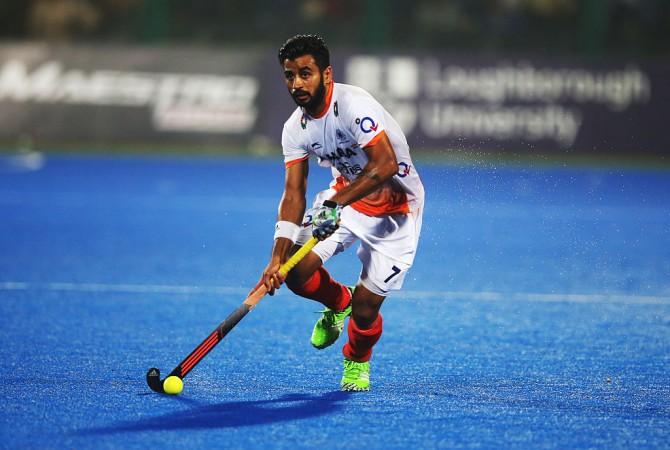
In 2016, Manpreet Singh was awarded the 'Best Emerging Player' award for his performance in that year's Champions Trophy. Couple of years later, he was the Indian captain leading his team on the field in the biggest events of the sport.
After the Indian team faced disappointments in the World Cup and Asian Games, Manpreet has his hands full trying to turn around the fortunes of the Indian team. But he has a coach who is confident about his abilities and a team with some highly talented players. In an exclusive interview with Akshay Saraswat of International Business Times, India, the 27-year old discusses the challenges and the opportunities his team faces. The skipper knows what they are and is ready to take his team to the next level.
You were rested for the Olympic Test event in Tokyo. Your coach Graham Reid also talked about managing your workload in an interview with us. So, how important is this period of rest for you?
Manpreet: It's quite important. For me, it's important because I will get rest. It is also important for youngsters in the team as they will get an opportunity to show how capable they are and how much improvement they need at the international level. So, I think it is beneficial to both me and the team.
You are still quite young. Becoming the captain of the Indian team at a young age, is it an advantage or a big challenge?
Manpreet: Personally, in our team we have a culture wherein, when we are on the ground, we believe that everyone is a captain in his own position. Every player has his own responsibility.

I have got a good opportunity and I have to take my team forward together. Also, everything that needs improvement, we have to work on that. Along with that, I have to keep the team together.
Your team suffered a big loss when Sardara Singh retired. How is your team trying to fill the void left by him?
Manpreet: So, we have many good youngsters among ourselves. Hardik Singh has been good. Along with him, we have Vivek Sagar, Chinglensana Singh, etc. So, according to me, the current set of midfielders are doing quite well. They are also young and so, are adding a lot of energy to the team. I think they are doing well to make up for the loss of Sardara Singh.
You had the opportunity to play with Sardara Singh. How much did you learn from him?
Manpreet: I got to learn a lot. Leadership, how to behave on the ground, how to conduct yourself, how to keep the team together and how to carry the responsibility of leadership, all these things I learnt from him. I am still learning. Before me, Sreejesh was the captain. From him also, I have learnt a lot.
With Harmanpreet being given the task of captaincy for the Tokyo event, did you give him any tips or advice?
Manpreet: You see, Harmanpreet is quite a good player. So, I think he will respond very well to being given this responsibility. He is a really good and experienced defender who has been in the team for a long time. So, I think he will perform the role of captain quite well.

In the FIH Series Finals, while your team was brilliant in attacking, they seemed a little vulnerable when faced with a counter attack. Would you start playing a little bit back in order to strengthen the defence?
Manpreet: After the FIH Series Finals took place, we discussed and reached the conclusion that the better we are in defence, the better it would be. Because, in attacking, we are already quite good. But, if we give less chance to the opponents while defending, it will be better for us.
The less opportunities we give to our opponents to get penalty corners or score goals, the better it would be. For achieving this aim, when this camp got underway, defenders were especially in focus. This is why we had a special camp of one week with Fergus Kavanaugh from Australia. He taught us many good things that can improve our defence even more. Our coach also believes that if your defence is good, you can win championships.
Alongside you, Chinglensana Singh is a very important player in the midfield who does a lot of work. Do you think that he and you are the two most important players in the midfield?
Manpreet: Chinglensana Singh is a very good player and experienced player who keeps things balanced in the midfield. I think whenever he comes back into the team from this injury break, it would make a lot of difference.
Last year, your team faced disappointments in the World Cup and Asian Games. How hard was it to get over them?
Manpreet: It was quite difficult for me because it was a pretty good opportunity. But, unfortunately, we couldn't grab it. However, presently, that is history and we can't change it. All we can do is move on from what has happened. We can't change what has been but can change the future. So, we have put that behind us and are preparing for the Olympic qualifiers.















